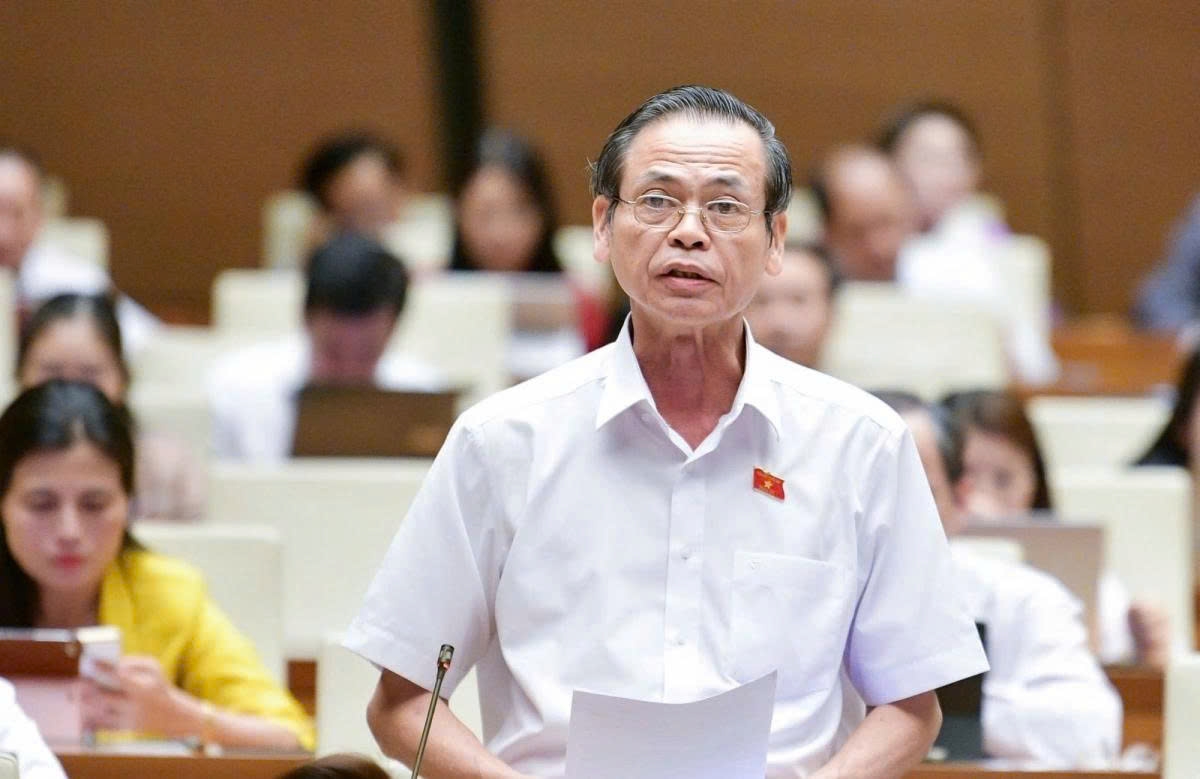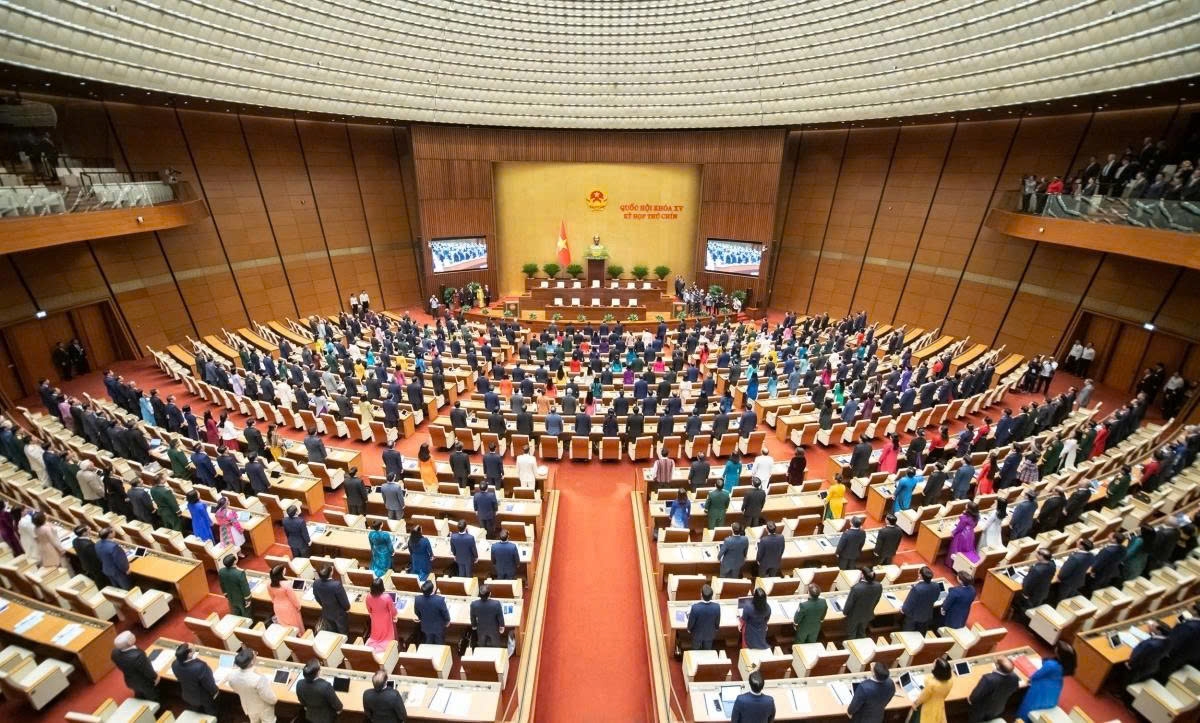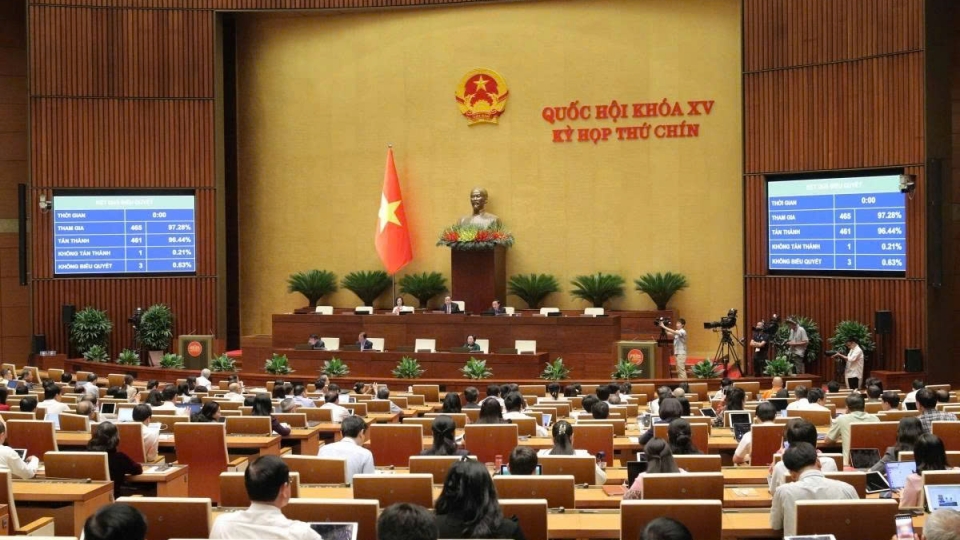Lawmakers propose bold solutions to spur socio-economic development
VOV.VN - National Assembly deputies proposed practical solutions to enhance the effectiveness of national governance and promote socio-economic development at the ongoing session of the legislature in Hanoi on June 17.

Deputy Tran Huu Hau of Tay Ninh province voiced strong support for the 8% GDP growth target set for 2025, envisioning the possibility of achieving double-digit growth in the years to follow. He stressed that sustaining such momentum is essential for Vietnam to make significant strides, catch up with other nations, and fully realise its development potential by 2045.
However, Hau also candidly highlighted persistent contradictions and systemic bottlenecks that could impede this transformative effort if not promptly resolved. Among these is the chronic delay in public investment disbursement, a long-standing paradox. Though investment projects are state-managed, government-approved, and publicly funded, many continue to face sluggish implementation.
In the first five months of 2025, just over 20% of the annual public investment plan was disbursed nationwide, with some major economic hubs managing as little as 15%.
Hau expressed optimism that the laws and resolutions passed during this National Assembly session would help unlock public investment, a critical source of capital that can serve as a foundation for attracting and leveraging additional financial resources, thereby providing genuine impetus for economic growth.
He also drew attention to entrenched bureaucratic inefficiencies in many local administrations. Complicated and outdated procedures, particularly in land and construction-related processes, continue to waste time and resources while undermining public and business confidence.
Hau welcomed the Prime Minister’s recent directive to eliminate construction permits, which have long been criticised as obsolete, burdensome, and susceptible to abuse. If implemented thoroughly, this policy could streamline administrative procedures, eliminate redundancies, and resolve what he called “administrative paradoxes” that obstruct both citizens and officials in carrying out their duties.
Meanwhile, deputy Tran Hoang Ngan of Ho Chi Minh City expressed his agreement with the government’s report reviewing national socio-economic development in 2024 and the first five months of 2025. He noted that Vietnam achieved or exceeded all 15 major targets, maintained inflation below 4% for ten consecutive years, recorded a trade surplus every year (since 2016), and saw per capita income approaching the upper-middle-income threshold.
He also praised the country’s progress in various global rankings, noting a 2-spot rise in the Global Innovation Index, a 1-position improvement in the National Brands Index, and an 8-place jump in the World Happiness Index.
The deputy proposed key strategic groups of solutions to spur socio-economic development, including sustaining the three strategic breakthroughs (institutional reform, infrastructure, and human resource development), restructuring the three traditional growth drivers (exports, investment, and domestic consumption), and unlocking the three new growth drivers (science and technology, innovation, and digital transformation).
He also emphasised opportunities from the formation of 34 new provinces and centrally-run cities following the reorganisation of administrative units, saying if supported by appropriate institutional frameworks and timely infrastructure investment, these engines could strongly propel future growth.
The deputy also urged greater investment in Vietnam’s competitive advantages, including high-tech, smart agriculture; the maritime economy with focus on shipping, oil and gas, energy, and fisheries; tourism by enhancing infrastructure to position it as a “domestic export sector”; and high-quality services such as finance and healthcare, which could become growth drivers if effectively leveraged.

Taking the floor, deputy Ha Sy Dong of Quang Tri province emphasised the importance of how policies are implemented, particularly at a time when both citizens and businesses are having to constantly adapt to rapid and frequent policy changes.
He acknowledged recent improvements in Vietnam’s business and investment environment, but expressed concern that progress is slowing down, and in some cases, even regressing.
“Many businesses continue to report numerous obstacles and inconsistencies in the business environment,” he noted. “Without a true revolution in improving the business environment, minor adjustments will not be effective.”
He warned that without breakthrough reforms, the ambitious long-term goal of achieving double-digit growth over the next two decades would be unattainable. He also cautioned that pursuing high growth targets in 2026 and 2027 through fiscal and monetary expansion alone could create significant macroeconomic risks.
Drawing from current realities, he stressed that resolving obstacles in investment projects must be treated as a top policy priority if Vietnam aims for sustained high growth. He proposed that the Government take strong, decisive action, including establishing a task force of economic and legal experts; outline proposals to remove and simplify investment procedures; and prioritising the streamlining, merging, or integration of administrative processes.
He concluded that only through such efforts could Vietnam realistically achieve the 8% growth target set for this year.





